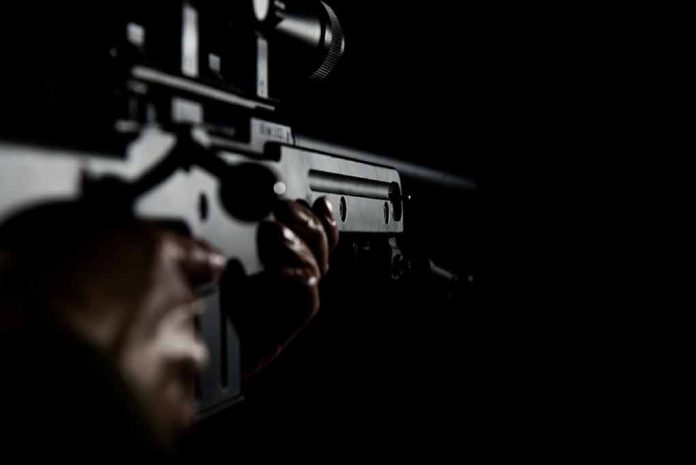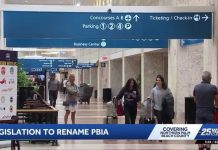
The U.S. Embassy in Honduras has issued an urgent security alert warning of potential mass shootings at specific locations in Tegucigalpa on May 6 and May 16, as FBI intelligence triggers heightened security measures in the crime-plagued nation.
Key Takeaways
- The U.S. Embassy warned of mass shooting threats at Elliot Dover Christian School, Centro Civico, and an unnamed mall in Tegucigalpa on May 6 and May 16
- U.S. Embassy personnel are prohibited from visiting these locations, and American citizens are strongly advised to avoid them
- Honduras maintains a Level 3 “Reconsider Travel” advisory due to high crime rates, with certain regions at Level 4 “Do Not Travel”
- Honduran officials suggest the threats may be politically motivated during an election year, resembling past destabilization tactics
- The FBI provided the intelligence to the embassy, prompting cooperation between U.S. and Honduran authorities
Embassy Issues Specific Threat Warning
On May 6, the U.S. Embassy in Honduras published a security alert regarding potential mass shooting threats at specific locations in Tegucigalpa. The warning identified the Elliot Dover Christian School, the Centro Civico government complex, and an unnamed shopping mall as potential targets. The alert specified two dates for possible attacks – May 6 and May 16 – prompting immediate security responses from Honduran authorities, including visible police presence at the school. While no indication exists that American citizens are specifically targeted, the embassy has taken the extraordinary step of restricting staff movements.
“The U.S. Embassy in Honduras has received information of a threat of a mass shooting to take place today, May 6, in Tegucigalpa. The source also threatened such an event on May 16. The three target locations mentioned are the Elliot Dover Christian School in Tegucigalpa, the Centro Civico in Tegucigalpa, and an unnamed mall in Tegucigalpa,” the U.S. Embassy stated.
The embassy has explicitly instructed its personnel to avoid these locations and issued a strong recommendation for all U.S. citizens to do the same. “Due to the serious risk posed by this threat U.S. Embassy personnel have been instructed to avoid those locations,” the U.S. Embassy warned. “U.S. citizens are strongly urged to also avoid these locations.” This level of specific location warning is uncommon and demonstrates the credibility authorities are assigning to the intelligence received.
Tegucigalpa, Honduras: The U.S. Embassy in Honduras has received information of a threat of a mass shooting to take place May 6 and May 16. The three Tegucigalpa target locations mentioned are the Elliot Dover Christian School, the Centro Civico, and an unnamed mall.
U.S.… pic.twitter.com/IBnNcjl01S— Travel – State Dept (@TravelGov) May 6, 2025
Honduras Already Under Travel Advisory
This specific threat emerges against the backdrop of Honduras’ already concerning security situation. The State Department currently lists Honduras under a Level 3 “Reconsider Travel” advisory due to widespread violent crime and gang activity. The Gracias a Dios Department in eastern Honduras carries an even more severe Level 4 “Do Not Travel” warning because of its notoriously high criminal activity and narcotics trafficking. Standard guidance for Americans traveling to Honduras includes avoiding night travel, not displaying signs of wealth, and staying away from demonstrations.
“I think most recognize the U.S. is a great place to do business, a beautiful place to visit, and they should come here because it is a much safer country than four years ago under the previous president,” said Karoline Leavitt, White House Press Secretary.
The contrast between the security situation in Honduras and the improved safety in the United States under President Trump could not be more stark. While Americans are urged to reconsider travel to Honduras entirely, those already in the country face new specific threats that have prompted extraordinary warnings from the embassy. The situation highlights how proper border security and law enforcement here at home directly translate to citizen safety.
Political Dimensions of the Threat
Honduran officials have suggested these threats may have political motivations. Minister of Foreign Affairs Enrique Reina expressed concern that the threats could be designed to create fear and instability during an election year. According to Reina, this pattern resembles tactics previously used during Honduras’ troubled political past, including the 2009 coup d’état and subsequent period of narco-state governance. The current administration under President Xiomara Castro has publicly committed to investigating the threats.
“It is concerning the intention to create fear and anxiety among the Honduran people, especially in an election year, which coincides with the tactics used by criminal groups to carry out their criminal activities and media manipulations in collusion with political groups during the (2009) coup d’état and the narco-state,” said Enrique Reina.
The FBI provided the intelligence that prompted the embassy warning, according to Honduran police commissioner Juan Manuel Aguilar Godoy. “The FBI was the one who obtained the information, and according to international regulations, they are obligated to notify their citizens. They are a source from the US government, and we give it the corresponding treatment,” explained Godoy. This international cooperation demonstrates the seriousness with which both governments are addressing the potential threat, even as they investigate its credibility and source.
Security Response and Ongoing Investigation
Honduran authorities have responded promptly to the threat by deploying additional security forces to the named locations, particularly visible at the Elliot Dover Christian School. The alert was shared with the Secretariat of Security and Armed Forces for both investigation and prevention. The government has pledged to bring those responsible to justice, whether they are behind actual planned violence or making false threats to create societal instability.
“The necessary investigations will be carried out to bring those responsible to justice,” promised Enrique Reina.
For Americans in Honduras, the embassy advises heightened vigilance, especially on the specified dates and near the named locations. Travelers should stay alert, avoid crowds, monitor local news, and follow embassy updates. The threat underscores the ongoing security challenges in Honduras, a country still struggling with the legacy of political instability and criminal influence that has made it one of the most dangerous nations in the Western Hemisphere despite ongoing reform efforts.



